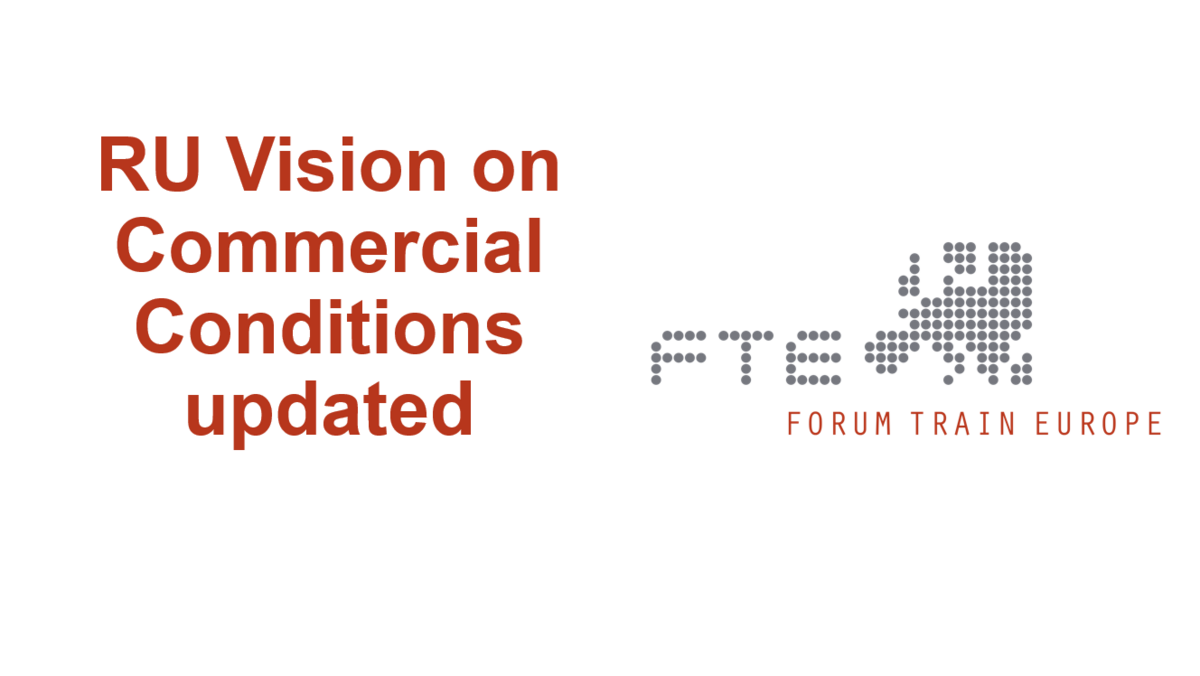A year has passed since the FTE Working Groups Passenger and Freight adopted a comprehensive RU vision on how Commercial Conditions should be designed to efficiently steer behaviour and enhance predictability and reliability in the railway sector. In September 2025, the Working Groups met again and agreed on a minor update to reflect new input and developments.
The newest version 3.0 is now available here, together with additional materials on the dedicated page. Below is a short presentation of the changes.
The main highlight is the introduction of a new element – ‘Compensation for Delayed Network Upgrades’. When IMs carry out network-upgrading projects, whether technological or infrastructure-related, RUs are required to adapt their rolling stock or invest in new vehicles to comply with future infrastructure requirements. Such adaptations often represent significant financial investments for RUs.
If the IM does not complete the infrastructure upgrades within the announced schedule, RUs may face situations where their rolling stock cannot be used as intended, or even at all. Imagine, for example, a Passenger Electric Unit on a still non-electrified line, or a locomotive equipped with ETCS that cannot operate because the line still uses a local train control system.
To address this, it is proposed to introduce a compensation mechanism within multi-annual contracts (such as Framework Agreements and Rolling Planning) in cases where the activation date of such investments is postponed. The aim is to increase the reliability of infrastructure investment planning and protect private investments.
Furthermore, the RUs have adapted the terminology to align with the negotiated EU Regulation on the Use of Infrastructure Capacity. The motivational incentive now mirrors the concept of penalties under Article 40, while compensation corresponds to national schemes outside the scope of Article 40.
Two new exceptions to the penalty system have also been proposed. The first applies to strikes involving both RU and IM staff. The second covers situations where a change is initiated by a service facility not (co)owned by an IM. However, if the change originates from a service facility owned by an IM, it remains penalised and is considered as a change coming from the IM side.
Certain adjustments have been made to the concept of bus replacement services, taking into account that train services are not always completely interrupted. IMs may, in some cases, remove certain commercial stops to maintain train speed, while the stations that are no longer served must still be covered by bus services.
Finally, references to best practices have been extended (Annexes 4.5.2 and 4.7). The Slovenian IM, Slovenske Železnice Infra, applies a sophisticated compensation system for freight services to ensure cost competitiveness and improve reliability when Temporary Capacity Restrictions are not announced as scheduled. The transparent calculation formula takes into account additional train-kilometres, longer travel times, and restrictions on train parameters (such as weight and length) as these all bring unexpected costs to RUs and their customers. Importantly, the IM also considers re-routings via foreign networks in the compensation formula, representing a significant step toward multi-network capacity rights even before their introduction by EU Regulation.
The RU Vision has also been expanded (Annex 4.7) with several European examples of traction support. In these cases, IMs provide locomotives that are available to any RU during major infrastructure works, particularly when re-routing involves non-electrified lines or steeper gradients compared to the original route.
We are pleased to invite you to explore the RU Vision on your own.
